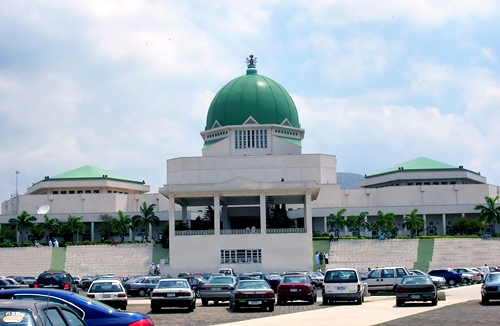Details have emerged on the reasons the National Assembly changed the sequence of elections ahead of the 2019 polls.

Details have emerged on the reasons the National Assembly changed the sequence of elections ahead of the 2019 polls.
Some lawmakers who spoke with PREMIUM TIMES in confidence said negotiations that preceded the passage ended in majority favouring the change based on past experiences and calculations about the 2019 elections.
According to the timetable released by the Independent National Electoral Commission (INEC), presidential and National Assembly elections were slated for the same day on February 16, 2019.
However, with amendment to section 25 of the Electoral Act, election into seats in the National Assembly will hold on the first day before those of the state lawmakers and state governors on the second day, with the presidential election holding last on a separate date.
According to the section, the elections shall be held in the following order: (a) National Assembly election (b) States House of Assembly and Governorship elections (c) Presidential election.
The House of Representatives was first to amend the Electoral Act some weeks after INEC’s timetable was announced. However, the passage at the senate was not without drama and dissent.
The senate chamber was thrown into a rowdy session on Wednesday, February 14, following the adoption of the conference committee report on amendment to the Independent National Electoral Commission (INEC) Act.
The senate in its justification of the amendment said members of the conference committee followed rules guiding legislative procedures in the Senate and the House of Representatives in making the recommendation.
“Our rule says whatever position we have taken and there is a similar one in the house, we harmonise, but where the house has taken a position that we have not taken, we are bound compulsorily to adopt that of the house,” Senate spokesperson, Sabi Abdullahi, said on Wednesday.
While the plenary was still on, 10 senators left the chamber to address the press on their disapproval of the amendment to section 25 of the Act. They alleged that the change in sequence was targeted at President Muhammadu Buhari.
However, two influential senators who supported the amendments, and who have deep insights of the political schemings that culminated in their passage, have now confirmed to PREMIUM TIMES that the changes were indeed targeted at President Buhari, with sights trained on the next elections.
Both senators asked not to be named so they are not victimised by the presidency and the national leadership of the ruling party.
The first lawmaker traced the decision to amend the sequence of elections to the crisis rocking the ruling All Progressive Congress (APC).
“The change in sequence is as a result of APC crisis where it was predicted that senators and members of House of Reps will not be given ticket because the governors want to replace them with their own candidates,” he said.
“Almost 70 to 80 percent of APC senators and Reps members are working on moving to other parties. So, in order for them to move to other parties, the understanding is that if they will move to other parties, under the old order, it will be difficult for people to win elections. The idea is that if you move to a new party, people can be voted based on their own merit.
“The new arrangement favours three categories of people. One, the APC members who are aggrieved, second, it favours smaller political parties. Third, it favours the PDP.”
The lawmaker added that rather than fighting the President as the dissenting senators claimed, they are actually fighting for their political interests.
“Those who came up against it, outwardly, they are saying that it was targeted at Buhari but inwardly, what they were saying was that if they separate presidential election from National Assembly election, the APC will not release money for polling agents. That APC will not release money for the National Assembly elections. But it is only when they tie National Assembly election with presidential election that the APC will have no option than to fund it.”
The second lawmaker said the need to erase the notion that lawmakers won their elections in 2015 due to the bandwagon effect of Mr. Buhari’s election informed the new order.
After the 2015 elections, analysts posited that majority of APC lawmakers rode on the popularity of Mr. Buhari to win their elections. This, some of the lawmakers consider offensive.
The lawmaker said the need to test the water, with or without the President, informed the decision to alter the election sequence.
Also, the new order was imperative due to alleged electoral attitude of President Buhari and the APC.
If the sequence was left the way it was, the lawmakers are of the opinion that Mr. Buhari will not be interested in other elections once he wins his.
Besides, according to our source, the APC will be forced to release money for other elections bearing in mind that the president’s election is at stake.
Meanwhile, the House of Representatives, unlike the Senate, adopted the harmonised version of the amended Electoral Act on Wednesday.
The amendments, if eventually signed by the president, will effectively re-organise the sequence of elections in Nigeria.
However, if the president withholds assent, the lawmakers are empowered by the constitution to veto the amendment with the votes of two-thirds of their members.
The lawmakers told PREMIUM TIMES that they (senators) are ready to veto the decision should the president reject the bill.






